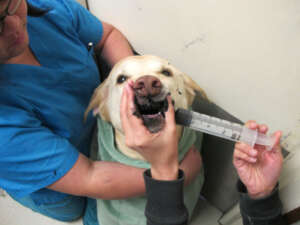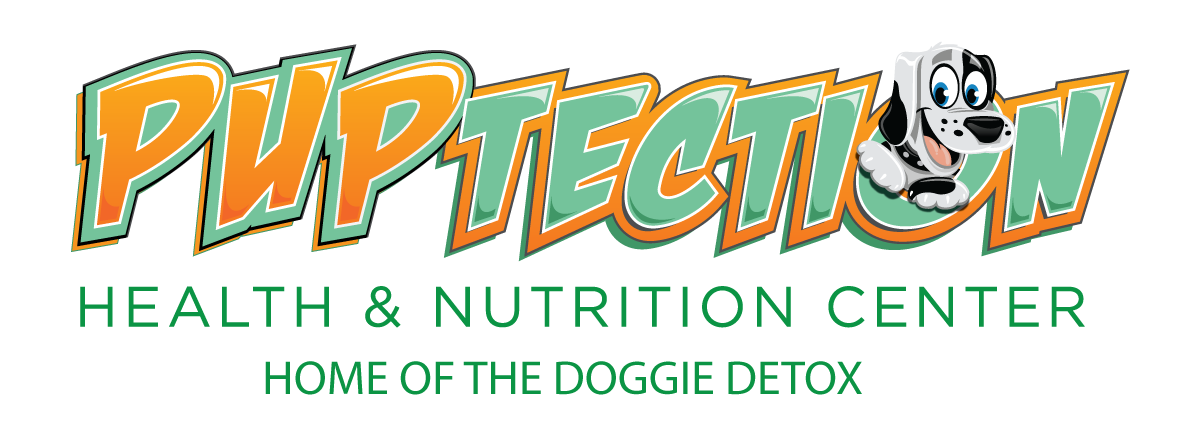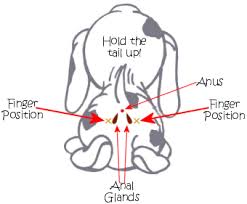Understanding Common Illnesses in Dogs
Dogs, like humans, can suffer from a range of common illnesses in dogs that affect their overall well-being. As pet owners, it’s crucial to be aware of the common health issues that can arise and to seek appropriate treatment options. While conventional veterinary medicine is widely practiced, an increasing number of veterinarians are exploring and integrating modern therapies such as nutraceuticals and alternative treatments. This guide will delve into common dog illnesses and how both traditional and alternative therapies can play a role in managing them.
 Common Dog Illnesses and Their Symptoms
Common Dog Illnesses and Their Symptoms
1. Skin Problems in Dogs
Skin issues are among the most common health concerns for dogs. These problems can range from allergies and infections to more severe conditions like dermatitis or hot spots. Typical symptoms include itching, redness, swelling, and hair loss. Identifying the underlying cause is essential for effective treatment.
2. Digestive Upsets in Dogs
Digestive problems is a common illnesses in dogs can manifest as vomiting, diarrhea, constipation, or bloating. Causes may include dietary indiscretion, infections, or chronic conditions such as inflammatory bowel disease. Proper diagnosis is key to addressing these issues effectively.
3. Ear Infections in Dogs
Ear infections are prevalent in many dogs, particularly those with floppy ears or allergies. Symptoms include scratching at the ears, shaking the head, and a foul odor. Ear infections can be caused by bacteria, yeast, or parasites.
4. Joint Pain and Arthritis in Dogs
Joint pain and arthritis can significantly impact a dog’s quality of life. common illnesses in dogs Symptoms often include difficulty in movement, stiffness, and reluctance to engage in physical activities. Older dogs and certain breeds are more susceptible to these conditions.
5. Urinary Tract Infections (UTIs) in Dogs
UTIs can cause frequent urination, blood in the urine, and discomfort while urinating. This condition is common illnesses in dogs often seen in female dogs and can lead to more severe complications if left untreated.
 The Role of Conventional Veterinary Medicine
The Role of Conventional Veterinary Medicine
Traditional veterinary medicine involves diagnosing and treating illnesses based on established medical practices and pharmaceuticals. This approach is effective for many health issues and provides a solid foundation for managing your dog’s health.
Conventional Treatments for common illnesses in dogs
- Skin Problems: Medications such as antibiotics, antifungals, or steroids may be prescribed to manage infections or allergies.
- Digestive Upsets: Treatments can include dietary changes, medications to address specific conditions, and supplements to support digestive health.
- Ear Infections: Treatment often involves cleaning the ears and administering topical or systemic medications to eliminate the infection.
- Joint Pain and Arthritis: Pain management may include anti-inflammatory medications, pain relievers, and joint supplements.
- UTIs: Antibiotics are commonly prescribed to treat bacterial infections in the urinary tract.
The Rise of Alternative Therapies for Dogs
While conventional treatments are effective in common illnesses in dogs, many pet owners and veterinarians are turning to alternative therapies to complement traditional care. These therapies focus on holistic and natural approaches to enhance your dog’s health and well-being.
Nutraceuticals for Dogs
Nutraceuticals are natural substances that provide health benefits beyond basic nutrition. They are used to support various aspects of a dog’s health, including:
- Skin and Coat Health: Nutraceuticals such as omega-3 fatty acids and antioxidants can improve skin health and reduce inflammation.
- Digestive Health: Probiotics and digestive enzymes can aid in managing digestive issues and promoting gut health.
- Joint Health: Supplements like glucosamine and chondroitin are commonly used to support joint function and reduce pain associated with arthritis.
Herbal Remedies for Dogs
Herbal remedies involve using plant-based substances to treat and prevent health issues. Common illnesses in dogs herbs used in canine health include:
- Turmeric: Known for its anti-inflammatory properties, turmeric can help manage joint pain and arthritis.
- Echinacea: Often used to boost the immune system and support overall health.
- Chamomile: Can aid in digestive health and provide calming effects for anxious dogs.
Homeopathic Remedies for Dogs
Homeopathy is based on the principle of “like cures like,” where highly diluted substances are used to stimulate the body’s healing response. Homeopathic remedies for common illnesses in dogs include:
- Arnica: Used to alleviate pain and bruising from injuries.
- Apis: Often used to treat allergic reactions and swelling.
Physical Therapies for Dogs
Physical therapies can complement conventional and alternative treatments, helping to improve mobility and reduce pain. Common physical therapies include:
- Massage Therapy: Helps to relieve muscle tension, improve circulation, and promote relaxation.
- Chiropractic Care: Focuses on spinal adjustments to improve alignment and overall function.
- Acupuncture: Involves inserting fine needles into specific points to balance energy flow and alleviate pain.
Integrating Conventional and Alternative Therapies
A balanced approach that combines conventional veterinary care with alternative therapies can be highly effective for managing common illnesses in dogs. An accurate diagnosis from your veterinarian is crucial before starting any new treatment regimen. Working with a veterinarian who is open to alternative therapies ensures that your dog receives a well-rounded approach to their health care.
When to Consult Your Veterinarian
Before introducing any new treatments, including nutraceuticals or alternative therapies, consult with your veterinarian. They can provide guidance on the best approach based on your dog’s specific condition and overall health. Monitoring your dog’s response to treatments and making adjustments as needed will help ensure the best outcomes.
Conclusion
Understanding common illnesses in dogs and exploring both conventional and alternative therapies can greatly enhance your dog’s health and quality of life. By integrating modern therapies like nutraceuticals and alternative treatments with traditional veterinary care, you can provide a comprehensive approach to your dog’s well-being. Always consult with your veterinarian to tailor the treatment plan to your dog’s individual needs and ensure the best possible care.








